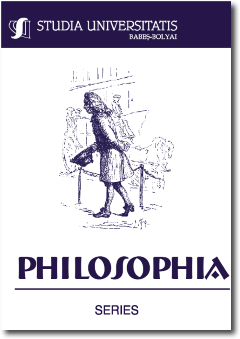A “WORLD OF WORK”? ON HEIDEGGER’S PRAGMATA AND THEIR CONSEQUENCES
A “WORLD OF WORK”? ON HEIDEGGER’S PRAGMATA AND THEIR CONSEQUENCES
Author(s): Cristian Hainic, Codruţa-Mariana PorcarSubject(s): Psychology
Published by: Studia Universitatis Babes-Bolyai
Keywords: pragmatism; hermeneutics; Martin Heidegger; things as pragmata; phenomenology of work.
Summary/Abstract: In his book Body, Community, Language, World, Jan Patočka questions whether Martin Heidegger takes interest in the world as such, or rather only in a special kind of world, viz., the world of human work. This enquiry is based on two main ideas that Heidegger puts forth: (1) that being cannot be predicated of, but only “understood practically,” and (2) that things should not be conceived of as objects, as opposed to subjects, but as pragmata, so as to better account for the intimate ontological relation between them and the life of human beings. While agreeing with Patočka’s hypothesis that the world as manipulative practice (the “world of work”) is itself underlain by a primordial “harmony” between human beings and world, our paper demonstrates that the latter is not only in accordance with Heidegger’s phenomenology, but also supported by it in many instances, the difference being that Patočka sees it as a perceptual and corporeal harmony, while Heidegger as an ontological one. The paper concludes that reducing the consequences of pragmata to a “world of work” is, thus, the result of an inaccurate interpretation which does not fully take into account man’s attunement to the world in Heidegger’s philosophy.
Journal: Studia Universitatis Babes-Bolyai - Philosophia
- Issue Year: 57/2012
- Issue No: 2
- Page Range: 55-64
- Page Count: 10
- Language: English

